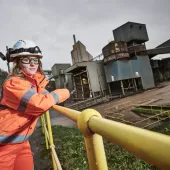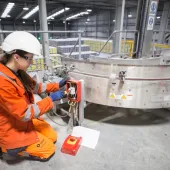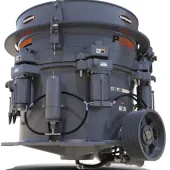Training online with Martin Engineering

Company introduces a series of ‘Foundations’ online modules for remote conveyor training
THE impact of the coronavirus pandemic has undoubtedly introduced a number of hardships on bulk material handlers, including limiting their options for critical training to improve conveyor safety and operational efficiency.
With in-person visits curtailed for the foreseeable future, Martin Engineering have developed an extensive array of tools to continue their longstanding tradition of educating those who maintain, manage and design conveyors for industrial operations.
The result is a wide range of globally available options to help improve safety and efficiency, reduce maintenance expenditures and extend equipment life – all of which, ultimately, contributes to greater profitability.
‘The pandemic has impacted our ability to teach traditional classes at customer sites,’ said Todd Swinderman, CEO Emeritus of Martin Engineering. ‘But it doesn’t reduce the need for conveyor operators and facility managers to obtain the benefits and continuing education credits those sessions provide.’
In response to the restrictions that COVID-19 has placed on face-to-face learning, Martin have created a series of interactive Foundations online modules based on the same non-commercial curriculum that has served bulk material handlers so well over the years.
Designed to keep attendees engaged and organized into 90–120min segments, the virtual training courses cover topics such as best practices for safety, fugitive material control and belt tracking. Upon completion, attendees are eligible to receive either professional development unit (PDU) or continuing education unit (CEU) credits.
‘The Foundations online seminars deliver non-commercial, topic-specific problem-solving information that can be put to immediate use,’ said Mr Swinderman. ‘There’s no sales pitch, and even the most remote locations can take advantage.’
Jerad Heitzler, customer development manager and an instructor of Martin’s safety workshops since 2010, added: ‘Conveyors are one of the best productivity-enhancing tools available, but conveyor injuries cost employers millions of dollars annually.
‘Because of the size of their material cargos, the speed of their operation and the amount of energy they consume and contain, conveyors have been shown to be a leading cause of industrial accidents, including serious injuries and fatalities. But injuries are preventable with the right training, preparation and safety precautions.’
According to Mr Heitzler, the company’s preferred platform is Zoom, but its expert trainers also have experience with Google Meet, Microsoft Teams and Webex.
‘We like Zoom, because it provides the best experience for the learner,’ he commented. ‘It integrates very well with our marketing software HubSpot, so learners can easily register using Martin URLs. We can also prepare specialized content that is highly valuable to them, including sharing job stories, additional content videos, relevant blog articles and Foundations book downloads.’
Since the onset of the virus, Martin have taught around 2,000 attendees using video conferencing. Mr Heitzler added that learners in the coal handling plant, cement and aggregates sectors have taken part in the online training seminars, along with industry consultants, service providers and engineering firms who design conveyors and plants.
As well as the online training course, Martin have engaged with customers in a variety of other ways, including webinars on critical concepts and best practices, as well as blog posts with insights by leading professionals detailing their experiences in the bulk handling industry.
Further information about the online conveyor training programme can be found at: www.martin-eng.com or by emailing: info@martin-eng.com









